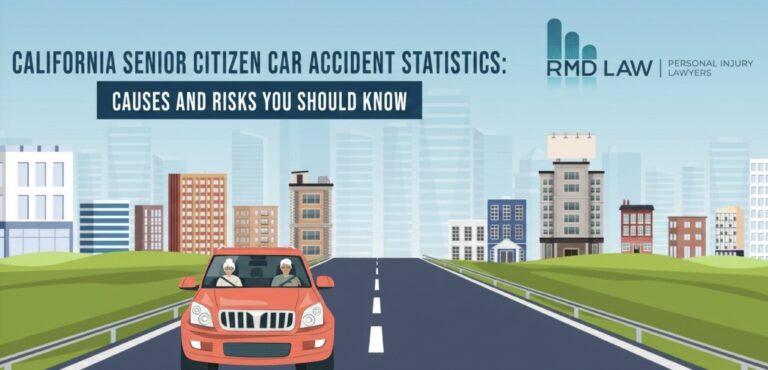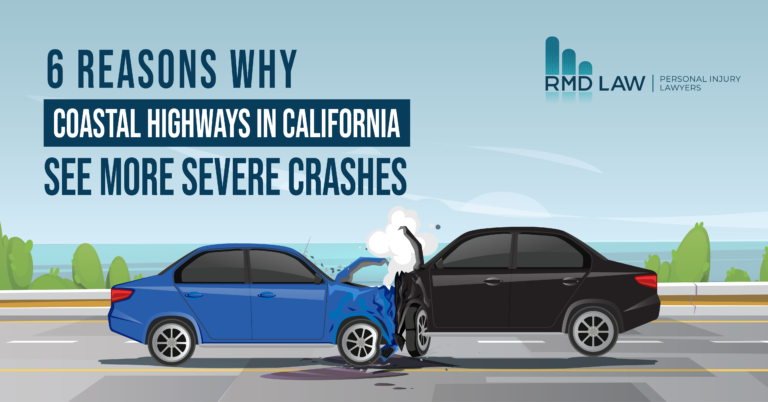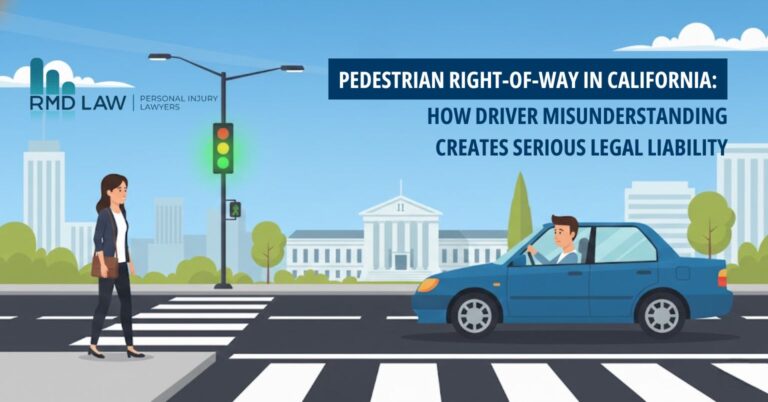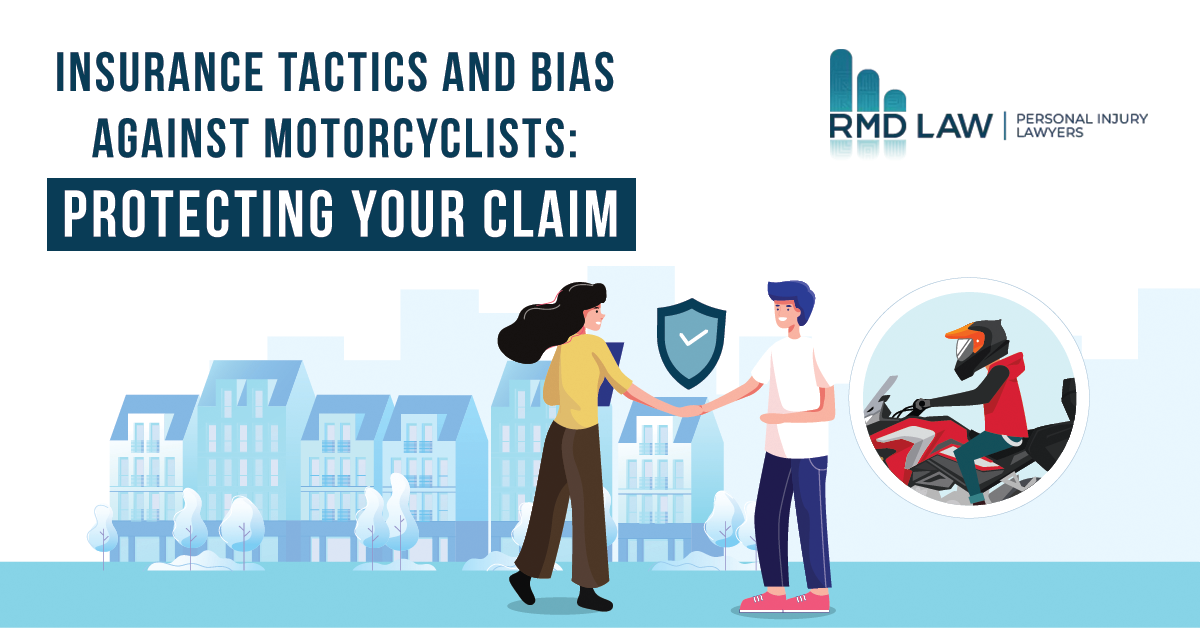
Key Takeaways:
Motorcycle Accidents Are Uniquely Dangerous and Complex
- Motorcyclists face much higher risks of severe injury or death compared to car drivers. These accidents also make motorcycle accident cases more legally and medically complex.
Cultural Bias Against Motorcyclists Can Undermine Claims
- Riders are often presumed at fault, even when they were not, which can affect fault determinations and settlement values.
Insurance Companies Use Tactics That Exploit Bias Against Riders
- Insurers often offer low estimate settlements or blame the motorcyclist, playing into stereotypes of bikers as reckless.
A Motorcycle Accident Attorney Is Critical to Proving Liability and Fighting Bias
- A skilled California motorcycle accident lawyer can gather evidence, counter false assumptions, deal with insurance companies, and present a strong case to ensure fair compensation.
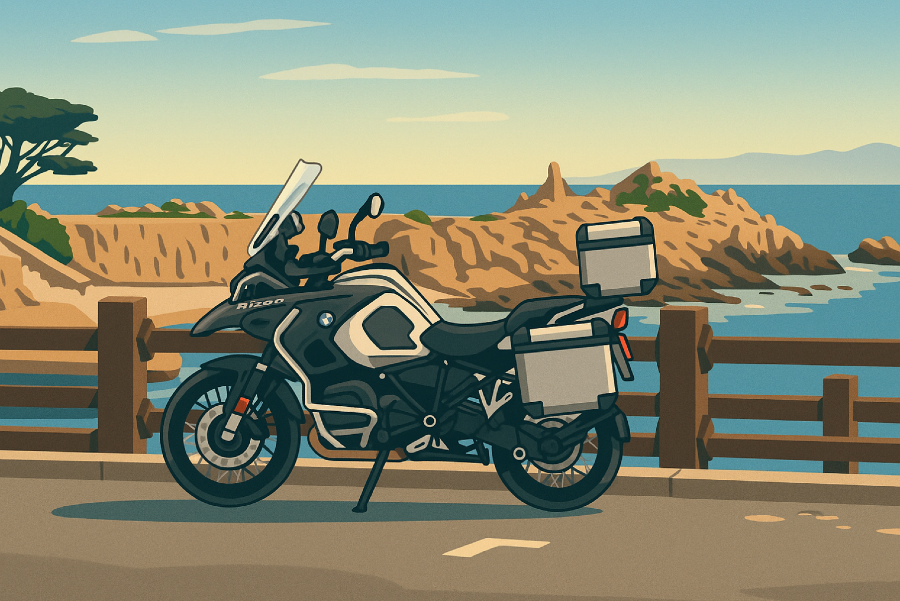
Motorcycle Accidents in California
Riding a motorcycle in California offers freedom and year-round great weather, but it also comes with risks. Motorcycle riding inherently involves greater exposure to danger and unique legal considerations, making it important for riders to understand their rights and responsibilities.
Hundreds of Californians are injured or killed in motorcycle accidents each year. In fact, 634 motorcyclists lost their lives on California roads in 2022 – a 3.8% increase from the previous year. These fatalities accounted for a significant share of the state’s traffic deaths (over 13% in 2021).
Major counties see especially high numbers of serious crashes. Los Angeles County, for example, recorded 120 motorcyclist fatalities, the most of any county in the state, along with hundreds of serious injuries. Given these sobering statistics, it’s clear that motorcycle accidents are a serious concern in California. Violations of traffic laws often play a significant role in causing these accidents or, conversely, in helping to prevent them when properly followed.
This blog will explore how motorcycle accidents differ from typical car crashes, why pursuing a motorcycle accident claim can be uniquely challenging, and how insurance companies might use tactics and bias against motorcyclists. We’ll also discuss how an experienced motorcycle accident lawyer can help level the playing field, maximize your compensation, and protect your claim.
How Motorcycle Accidents Differ from Car Crashes
Motorcycle accidents are not like your run-of-the-mill fender bender; they differ from traditional car accidents in several important ways. Motorcycle drivers face unique legal and safety obligations, such as complying with helmet laws, insurance requirements, and specific procedures for filing claims, which set them apart from car drivers.
- Vulnerability of Riders: Motorcyclists lack the protective features of cars like steel frames and airbags, making them far more vulnerable to severe injuries. National data shows motorcyclists are about 28 times more likely to die per mile traveled than car occupants. Wearing a helmet is vital for safety and can affect legal outcomes and compensation. In California, all motorcycle and motor-driven riders and passengers are required to wear a helmet.
- Road Hazards and Conditions: Motorcycles are more affected by road hazards such as potholes, gravel, debris, or wet pavement, which can cause loss of control. Riders must stay alert to these dangers that cars often avoid.
- Size and Visibility: Motorcycles are smaller and can easily be missed by drivers, often leading to accidents when cars turn left or fail to yield. Drivers may misjudge a motorcycle’s speed or distance, increasing crash risks. Other motorists have a responsibility to watch for motorcycles and share the road safely.
These differences mean that motorcyclists face unique dangers on the road. They also set the stage for how accidents are viewed afterward, sometimes unfairly, which brings us to the challenges riders face when making a motorcycle claim.
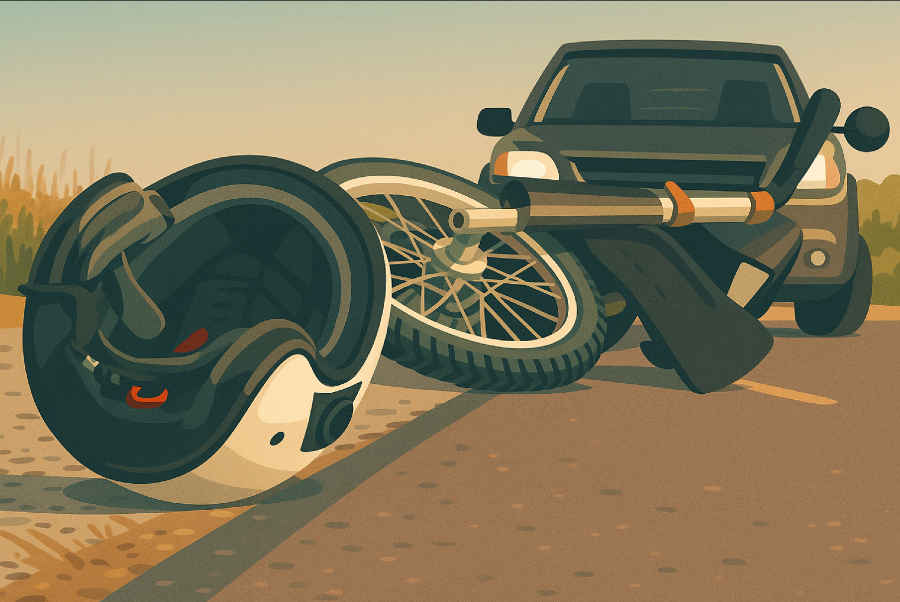
Challenges of a Motorcycle Accident Claim
Pursuing a motorcycle accident injury claim involves all the usual steps of a personal injury case, such as proving the other party’s fault, documenting your injuries, and negotiating with insurance companies. But these claims can be more challenging than other auto accident cases.
It is important to understand your insurance coverage, as the type and amount of coverage you have can significantly affect your motorcycle accident claim and potential compensation. Why? Here are a few key reasons:
- The process of filing a claim after a motorcycle accident can be more complicated than with other types of vehicles. Motorcycle injury claims often involve unique factors and may require additional documentation and evidence to support your case.
- Insurance claims related to motorcycle accidents are often scrutinized more closely by insurance adjusters. This means you may face more challenges in proving your damages and the extent of your injuries.
- When you receive the insurance company offers, it is crucial to carefully evaluate them before accepting, as initial offers may not fully compensate you for your losses. In complex cases, where there are additional legal or factual challenges, more extensive negotiation and legal expertise may be required to reach a fair settlement. Always remember to file a personal injury claim promptly to protect your rights and maximize your chances of a successful outcome.
Severity of Injuries
Because motorcycle crashes often result in serious injuries (broken bones, head trauma, or worse), the stakes of a motorcycle accident claim are high. Medical bills and rehabilitation costs for riders can be enormous. The overall cost of recovery may also include ongoing physical therapy, which is often necessary after severe injuries and can significantly increase expenses.
An insurer facing a motorcycle claim knows a lot of money may be on the line due to the severity of injuries, so they often fight these claims harder or scrutinize them more closely than a simple car accident claim. It’s important to document visible injuries with photos or videos, as this evidence can support your claim and demonstrate the severity of the accident.
Bias and Perception Issues
As we’ll discuss in detail later, riders sometimes battle an uphill perception problem. There can be an implicit assumption that the motorcyclist was “riskier” or did something wrong. This bias can make it more challenging to prove your case, even when the facts show you weren’t at fault.
For instance, if a rider was severely injured and unable to give a statement at the scene, the only narrative in the police report might come from the car driver or witnesses who assumed the biker was speeding. Overcoming a flawed initial report or bias from bystanders can complicate your claim. Insurance companies often act in their own best interest, which may not align with the needs of the injured rider. Having experienced motorcycle accident lawyers on your side can help overcome this bias and ensure your claim is handled fairly.
Complex Accident Dynamics
Motorcycle crashes often involve complex dynamics that might not be present in a typical two-car crash. There may be questions about road conditions, bike mechanics, or rider training that require expert analysis. Other factors, such as weather conditions or mechanical issues, can also complicate accident reconstruction. It’s not always as straightforward as a rear-end collision at a stoplight.
For example, a crash might involve a car merging into a motorcycle’s lane or a biker laying down the bike to avoid a worse collision. Reconstructing exactly what happened can take specialized expertise, and insurance companies might use any uncertainty to dispute your claim. In these complex cases, gathering evidence is crucial to determine fault and support your claim.
Legal Nuances for Motorcycles
California law has unique aspects for motorcyclists, such as legal lane splitting when done safely. However, misunderstandings about these rules can lead to unfair judgments during claims. Proving that the motorcyclist was riding responsibly adds complexity to the claim process. Proper motorcycle insurance is essential, as it significantly influences the outcome of a motorcycle accident claim, especially amid legal challenges and compensation issues.
Given these factors, navigating a motorcycle personal injury claim requires gathering strong evidence to counter assumptions. Additionally, insurance companies may attempt to lowball or deny claims, often exploiting biases against motorcyclists. Reviewing your insurance policy to ensure adequate coverage, including uninsured motorist protection, is also important.
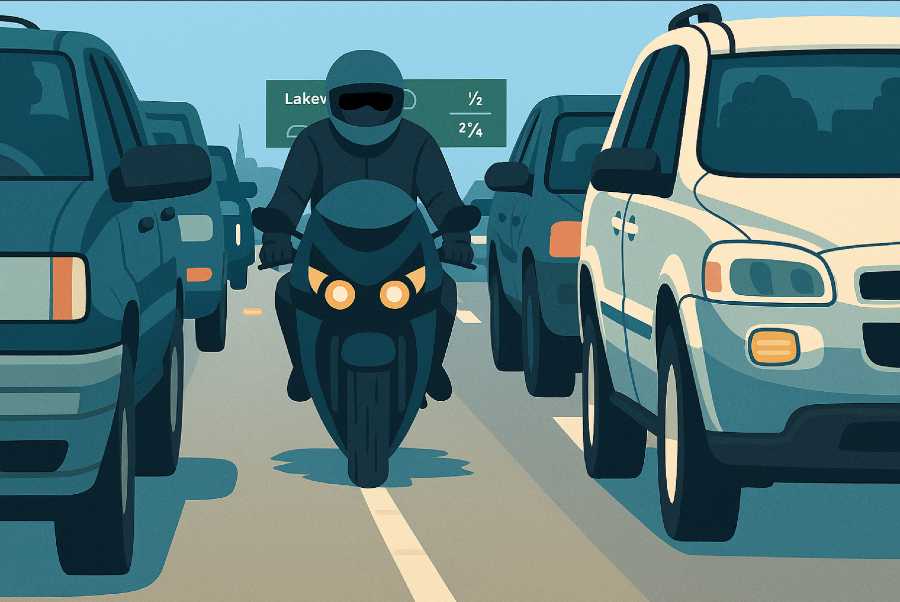
Common Insurance Tactics Against Bikers
Insurance companies are businesses focused on their bottom line. When it comes to motorcycle accident cases, some insurers employ specific tactics to minimize payouts. Identifying the at-fault party is crucial in a motorcycle accident claim, as insurers may attempt to shift blame to avoid responsibility.
Injured motorcyclists often find that the insurance adjuster is not exactly on their side – in fact, they may be working hard to poke holes in your claim. Here are some common insurance tactics to watch out for:
Blaming the Rider
A frequent strategy is to shift the blame onto the motorcyclist. The insurance adjuster might insist you were the one who rode recklessly. They could allege you were speeding, weaving through traffic, or violating some traffic law, even with scant evidence. Insurers may overlook the driver’s actions that actually caused the accident. This tactic taps into the stereotype that bikers are “daredevils.”
For example, an adjuster might argue that you should have been more visible or defensive, effectively saying the accident was your fault for riding a motorcycle in a certain manner. However, in many cases, it is the other driver’s actions that are the true cause of the crash. By casting blame on you, the insurer aims to reduce their liability (since under California’s comparative negligence rules, any percentage of blame assigned to you can reduce your compensation).
To counter these tactics, it is crucial to gather evidence that proves the driver’s negligence in order to establish fault in your claim.
Lowball Settlement Offers
Don’t be surprised if the first offer you get is shockingly low. Insurance companies know motorcyclists often suffer serious injuries and may be facing financial pressure from medical bills and time off work.
A common tactic is to extend a quick, low settlement offer before you fully understand the extent of your injuries or the value of your claim. This offer might cover only a fraction of your medical costs, let alone your lost wages, pain, and suffering. The hope is that you’ll jump at the fast cash and waive your right to pursue full compensation.
When evaluating a settlement offer, consider the ‘trial value’ of your claim – the estimated amount your case could be worth if it went to trial. Comparing the settlement offer to the trial value helps you assess whether the offer is fair or if you should negotiate for more.
Downplaying Injuries and Damages
Another tactic is to question the severity of your injuries. An adjuster might argue that your injuries aren’t as bad as you claim, or they’ll suggest that because you chose to ride a motorcycle, you “knew the risks” and thus should expect injuries. Insurers may also try to undervalue non economic damages such as pain and suffering, loss of enjoyment, and other intangible harms that are not easily quantifiable financially.
They might also scrutinize your medical history looking for any pre-existing conditions to claim this accident isn’t solely responsible for your current pain. The goal here is to devalue your claim, paying less for medical treatment or saying some treatments aren’t “reasonable or necessary.”
If you have suffered damages, it is crucial to document all losses from the accident, including both economic and non-economic impacts, to support your claim. To strengthen your case, you must prove that your injuries were a direct result of the motorcycle accident, using evidence such as medical records, photos, and accident reports.
Delay and Pressure
Insurance companies sometimes drag their feet in processing motorcycle accident cases. By delaying investigations or responses, they indirectly pressure you. As weeks or months pass without a fair payout, you might feel increasing financial strain. Insurers know that an injured person with mounting bills might be desperate enough to accept a lower offer just to get some relief. This is a calculated tactic: stall and hope the biker settles out of frustration or need.
All of these tactics are designed to protect the insurance company’s profits by reducing what they pay out on your motorcycle injury claim. It can be frustrating and feel unfair – and truthfully, it often is unfair. It’s especially angering when you know the accident wasn’t your fault, yet the insurer is acting like you are the problem. This is where understanding the broader cultural bias against motorcyclists comes into play, because insurers often leverage that bias. To avoid falling victim to these delay tactics, it is crucial to file a motorcycle accident claim as soon as possible and take timely steps to protect your rights.
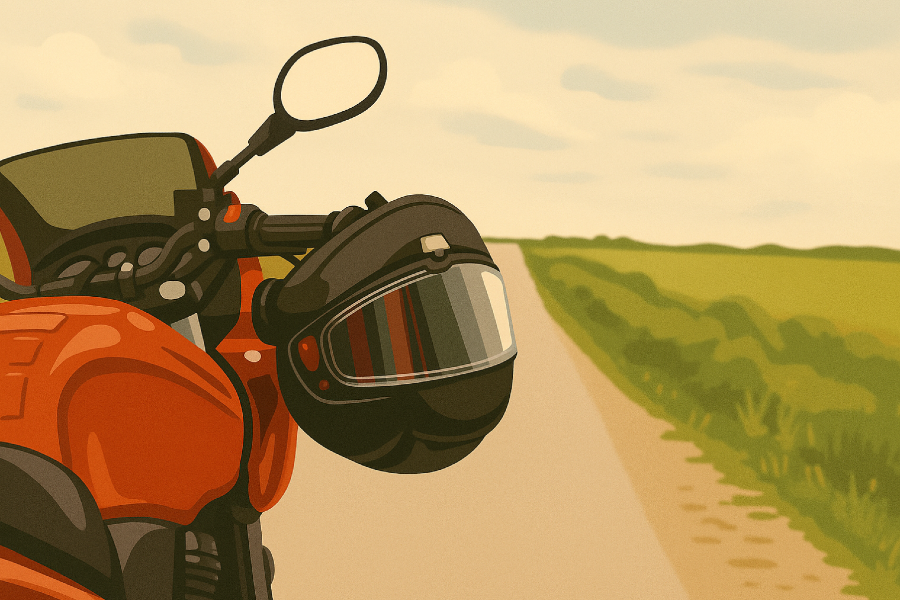
How Cultural and Systemic Bias Affects Motorcyclists
Beyond just individual tactics, motorcycle riders face a bigger hurdle: cultural bias. There’s an ingrained stereotype about motorcyclists that can color the entire claims process. In movies and media, bikers are sometimes portrayed as reckless rebels. On the road, a few loud or aggressive riders can leave a lasting bad impression on the driving public. The result is what many riders and lawyers call “biker bias.”
Biker bias is the assumption that if you ride a motorcycle, you’re probably a bit of a risk-taker – maybe even an unsafe driver. This bias can be subtle or overt, but it often means that people instinctively blame the motorcyclist in an accident scenario. For example, a juror who has never ridden a motorcycle might subconsciously think, “Motorcycles are dangerous; that rider must have been doing something crazy.” Even an insurance adjuster or police officer might carry these biases, perhaps without realizing it.
This systemic bias can affect your motorcycle accident case in several ways:
- Skepticism from Insurers: Insurance companies often assume motorcyclists contributed to crashes and scrutinize their claims closely. In California, about 16% of serious motorcycle crashes are caused by drivers failing to yield, yet riders frequently have to prove they were not at fault due to bias.
- Biased Police and Witness Reports: Officers or witnesses may include biased statements in reports, such as assuming a rider was speeding based only on driver claims. If the rider is incapacitated, their side may be missing, making it harder to correct these biases. Surveillance footage can be crucial to counteract such inaccuracies.
- Jury Bias: In trials, jurors may hold preconceived notions that motorcycling is risky, leading them to blame the rider unfairly. Studies show drivers are often at fault in car-motorcycle crashes, but public perception tends to blame the motorcyclist instead. One study found that in collisions between cars and motorcycles, the car driver was at fault 60% of the time. And yet if you asked a random person on the street, they might guess the biker is usually the one speeding or weaving. This disconnect between reality and perception is what bias looks like.
It’s important to shine a light on these biases because awareness is the first step in overcoming them. Not all motorcycle accidents are caused by “crazy bikers” – far from it. Many are caused by careless drivers who fail to notice motorcycles or by conditions outside the rider’s control. Evidence such as surveillance footage and documentation of property damage—like damage to the motorcycle or other vehicles—can be crucial in establishing what really happened in the accident and proving negligence.
Motorcyclists as a group are no more law-breaking than any other drivers; in fact, most riders are extremely safety-conscious (they have to be!). But when bias is against you, you’ll need to proactively counter it in your claim. The good news is, you don’t have to do that alone – and indeed, it’s best if you have a professional in your corner who knows exactly how to handle these issues.
Why Witness Statements and Testimony are Crucial in Motorcycle Accident Cases
In any motorcycle accident case, witness statements and testimony can make all the difference. Unlike the involved parties, witnesses offer an objective perspective on what happened at the accident scene. Their accounts can help clarify the sequence of events, confirm the motorcycle rider’s version of the accident, and provide crucial details that might otherwise be overlooked.
For example, a witness might have seen the other driver run a red light, fail to yield, or make an unsafe lane change – details that can be pivotal in determining fault. In many motorcycle accident cases, insurance companies scrutinize every detail, and having credible witness statements can tip the scales in your favor, helping you secure a fair settlement.
An experienced motorcycle accident attorney knows how to quickly identify and contact witnesses, ensuring their statements are collected while memories are still fresh. Your attorney may also use witness testimony to challenge any inaccuracies in the police report or to counter claims made by the other driver or their insurance company. The sooner these statements are gathered, the stronger your case will be.
If you’re involved in a motorcycle accident, try to get the names and contact information of anyone who saw the accident. Even a brief statement from a bystander can provide valuable support for your claim. With the help of a skilled motorcycle accident attorney, these witness statements can become a powerful tool in building your case and achieving the compensation you deserve.

Mistakes to Avoid in a Motorcycle Accident Claim
Filing a motorcycle accident claim can be overwhelming, especially when you’re dealing with injuries and the stress of the aftermath. Unfortunately, certain missteps can seriously undermine your accident claim and reduce your chances of a successful outcome. Here are some of the most common mistakes motorcycle riders should avoid:
- Admitting Fault at the Accident Scene: In the confusion after an accident, it’s natural to want to apologize or accept blame, even if you’re not at fault. However, any admission of fault can be used against you by insurance adjusters or in court. Stick to the facts and avoid making statements about who caused the accident.
- Delaying Medical Attention: Even if you feel okay, it’s essential to seek medical care immediately after a motorcycle accident. Some injuries may not be immediately visible, and waiting to see a doctor can lead to gaps in your medical records, making it harder to prove your injuries were caused by the accident.
- Speaking to Insurance Adjusters Without Legal Representation: Insurance adjusters may seem friendly, but their goal is to minimize the payout on your accident claim. Avoid giving recorded statements or discussing the details of the accident without first consulting an experienced motorcycle accident attorney.
- Failing to Preserve Evidence: Don’t repair or dispose of your motorcycle or any damaged property until your attorney advises you to do so. Photos of the accident scene, your motorcycle, and your injuries can be critical evidence in your case.
- Not Consulting an Attorney Early: Waiting too long to contact a motorcycle accident attorney can result in lost evidence and missed deadlines. An experienced attorney can guide you from the start, helping you avoid these and other costly mistakes.
By steering clear of these pitfalls and working with a knowledgeable motorcycle accident attorney, you can protect your rights and give your accident claim the best possible chance of success.
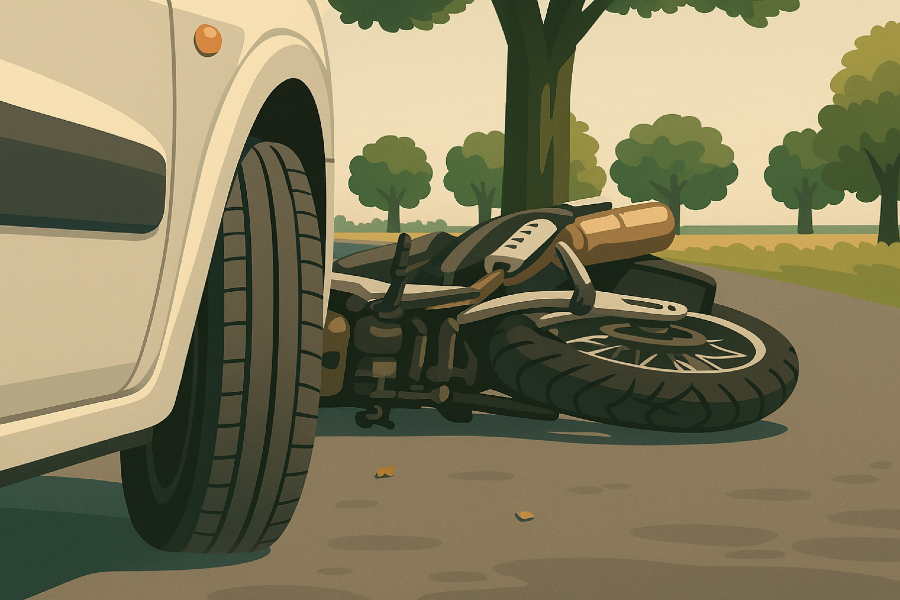
How a California Motorcycle Accident Lawyer Can Help
Facing an insurance adjuster who lowballs your motorcycle accident claim, all while combating societal bias, can be exhausting. This is where a seasoned California motorcycle accident attorney comes in. An experienced lawyer understands the challenges unique to motorcycle cases and has strategies to overcome them.
If the insurance company refuses to offer fair compensation, your attorney can advise you on pursuing a motorcycle accident lawsuit or a personal injury lawsuit to seek the compensation you deserve. Here are some of the crucial ways a lawyer can protect your rights and strengthen your claim:
Thorough Investigation and Evidence Gathering
A motorcycle accident lawyer will launch a comprehensive investigation into your crash. This means collecting police reports, interviewing witnesses (or obtaining their statements from the scene), and securing any available video footage (dash cams, traffic cameras, surveillance from nearby businesses, etc.).
Importantly, they know how to look for evidence that might counteract bias. For example, skid marks or vehicle damage that prove the angle of impact, helping show that the other driver made an improper left turn or lane change. They may also work with accident reconstruction experts who can scientifically analyze the crash dynamics and testify to how the collision occurred.
Solid evidence is the antidote to unfounded assumptions; by proving exactly what happened, your lawyer makes it harder for the insurance company to blame you unfairly.
Proving Liability (and Countering Bias)
Establishing fault is crucial in any motorcycle accident claim. An experienced attorney will counter “biker bias” by highlighting that you were a safe rider—obeying speed limits, properly licensed, wearing a helmet, and following traffic laws. They will gather evidence like photos, videos, and surveillance footage to prove the other driver’s negligence.
If the other driver claims they “didn’t see you,” your lawyer can show that failing to yield due to not seeing a motorcycle is not a valid excuse. Expert testimony and data can help educate insurers or juries that such accidents happen because drivers aren’t paying attention, not because motorcyclists are invisible. By controlling the facts, your attorney prevents insurers from exploiting stereotypes to deny responsibility.
Handling the Insurance Company
Once you have legal representation, insurance adjusters must communicate through your attorney, which immediately removes a lot of pressure from your shoulders. Your lawyer will handle all the back-and-forth with the insurance company, making sure that nothing you say gets misconstrued. This is critical, because as mentioned, an innocent comment from you could be twisted into an “admission” of some fault.
Your attorney is skilled in negotiation tactics and won’t be intimidated by common insurance company strategies. If the insurer makes a lowball offer, your lawyer will recognize it for what it is and push back with a demand that reflects the true value of your case. They’ll use the documentation of your injuries, treatment, and the impact on your life to justify every dollar. Essentially, your attorney serves as a buffer and advocate, so the insurance company can’t play games with you.
Maximizing Your Compensation
A motorcycle accident often results in significant losses, including medical bills, lost wages, pain, suffering, and long-term impacts on your quality of life. An experienced lawyer will ensure all damages are accounted for, such as future medical expenses, income loss, and non-economic damages like reduced enjoyment of life.
Insurance companies tend to undervalue pain and suffering, especially for motorcyclists, but your attorney will gather supporting evidence from doctors and family to build a strong case. If necessary, your lawyer won’t hesitate to take your case to court, often prompting insurers to offer better settlements to avoid trial.
Guidance and Support
Beyond the legal heavy lifting, a motorcycle accident lawyer provides peace of mind and guidance. They can advise you on medical liens, help you get proper medical care, and ensure you don’t miss important deadlines (like California’s two-year statute of limitations for personal injury claims). They’ll keep you informed about your case’s progress and prepare you for what to expect at each stage. Knowing that a professional who has handled many motorcycle accident claims is looking out for your interests can relieve a huge burden during a stressful time.
Having a knowledgeable California motorcycle accident attorney leveling the playing field means you don’t have to face biased attitudes or aggressive insurance tactics alone. Your lawyer’s job is to protect your motorcycle injury claim – by proving the facts, advocating fiercely on your behalf, and ultimately pursuing the maximum compensation you deserve for your injuries and losses.

Fight Bias and Protect Your Claim – Contact RMD Law
Motorcycle accidents in California present unique challenges; from the heightened risk of serious injury to the biases that riders often confront when making a claim. Insurance companies may try to use these biases and employ sneaky tactics to undermine your case, but you don’t have to let them. By understanding the landscape and getting the right legal help, you can protect your personal injury claim and ensure you’re treated fairly.
If you or a loved one has been injured in a motorcycle crash, don’t navigate these challenges alone. The experienced motorcycle accident attorneys at RMD Law know how to counter insurance company tricks and societal bias alike. We have helped many riders in California recover financially after devastating accidents by proving liability, standing up to insurance adjusters, and securing full and fair compensation.
Your focus should be on healing, let us handle the rest. Contact RMD Law at (949) 828-0015 for a free consultation to discuss your motorcycle accident claim. We’ll review your case, answer your questions in a friendly, no-pressure environment, and help you understand your rights and options.
Remember, you shouldn’t have to pay the price for someone else’s negligence or for unfair stereotypes. RMD Law is here to fight for you and help you get back on the road to recovery. Reach out to us today; we’re ready to protect your rights and get you the justice you deserve.
- Uneven Sidewalk Injury: How Much Is Your California Slip and Fall Case Worth - March 3, 2026
- 6 Serious Injuries from a Dog Bite: And When to Call a Dog Bite Lawyer - February 27, 2026
- Restaurant Slip and Fall in California: What Happens After a Bar or Dining Area Injury - February 24, 2026

